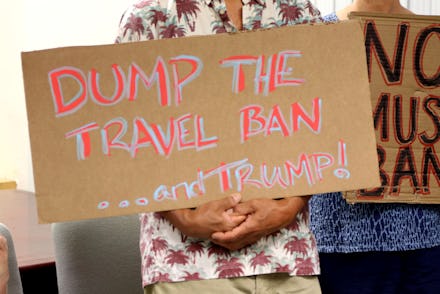Supreme Court expands definition of “close familial relationship” in latest blow to travel ban

The Supreme Court on Wednesday broadened the list of relatives allowed to enter the United States from the six Muslim-majority countries listed in President Donald Trump’s travel ban, ruling that grandparents, grandchildren, brothers-in-law, sisters-in-law, aunts, uncles, nieces, nephews and cousins of those currently in the country can enter.
Back in June, the Supreme Court allowed Trump’s controversial travel ban to go into effect, but said travelers from the six countries with a “close familial relationship” to someone already in the U.S. should be allowed to enter the country.
The court, however, failed to define what that relationship was, giving the Trump administration freedom to narrowly interpret that rule to only include parents, spouses, fiancés, sons, daughters, sons-in-law, daughters-in-law and siblings.
The state of Hawaii appealed those rules to a federal judge, who ruled last week that the Trump administration’s guidance on who counted as a close relative was too narrow.
District Judge Derrick Watson also said refugees who had already been working with a resettlement agency should also be allowed into the country.
But the Supreme Court blocked enforcement of that provision until the 9th Circuit Court of Appeals rules on a challenge to that decision, BuzzFeed reported.